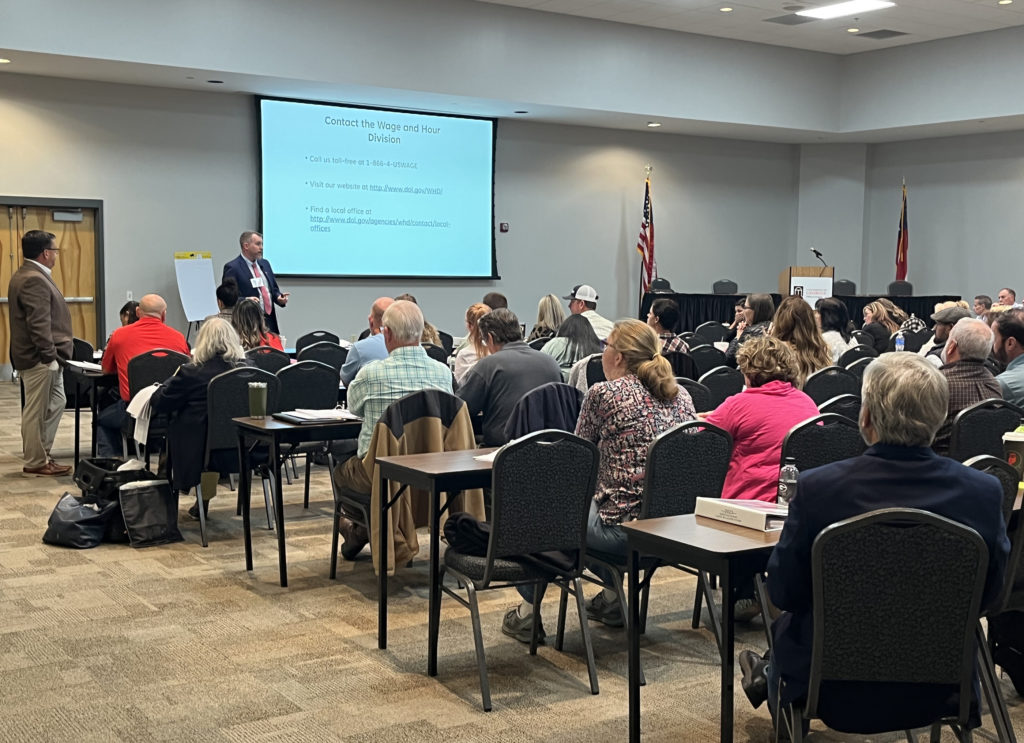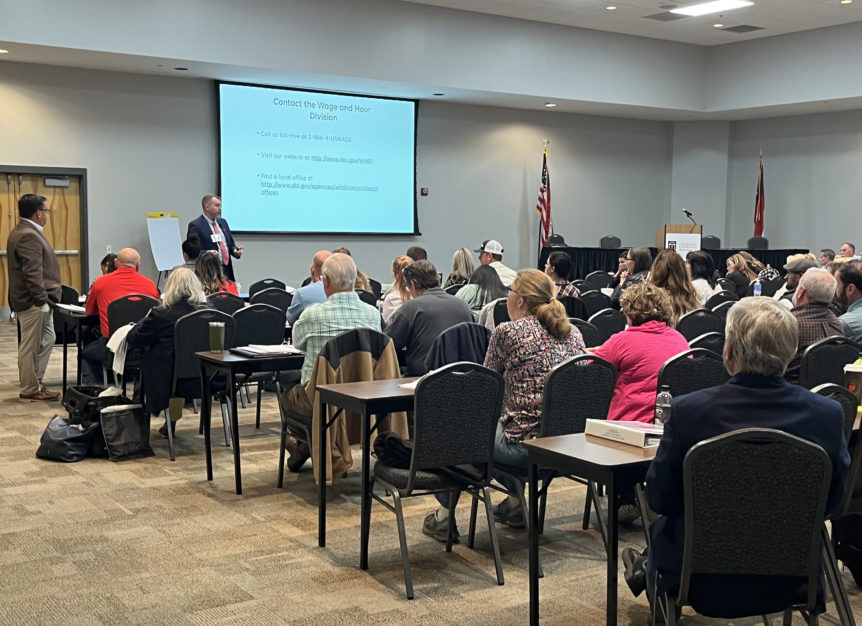
By Clint Thompson
Ask a specialty crop grower what their top concern is, and the likely responses are labor and trade; maybe not in that order but definitely at the top of the list.
The Georgia Fruit and Vegetable Growers Association (GFVGA) helped alleviate some of the labor concerns by hosting its annual Georgia Agricultural Labor Relations Forum in Tifton, Georgia, this week.
Chris Butts, executive vice president of the GFVGA, discussed the importance of the two-day forum, which highlighted labor relations with different agencies represented, including the Department of Labor and OSHA.
“First and foremost, it does offer those growers the opportunity to hear directly from the agencies that are regulating the H-2A program and to hear how proposed rule changes or current rules will impact life on their farm,” Butts said. “For us, we think it’s just as important that those regulators from those agencies are hearing about real world conditions on the farm and understanding how sometimes those rules can seem like they fit in a nice little box, but sometimes life on the farm doesn’t always fit inside that nice little box.”
H-2A
The H-2A temporary agricultural program allows agricultural employers who anticipate a shortage of domestic workers to bring nonimmigrant foreign workers to the U.S. to perform agricultural labor or services of a temporary or seasonal nature. It’s a necessary program that also brings endless regulations that farmers must abide by.
“We just spent about an hour discussing the wage possibilities of someone repairing fences and how that could fit into different wage classifications. For the grower, the amount of time and expertise that is needed to participate in these programs is becoming a problem,” Butts said. “Most growers are forced to use an outside contractor or agency. A larger grower that may have an HR staff that can devote time to this, the reality is they’re going to spend a lot of time, a lot of hours every year understanding the rules, understanding the application process and hopefully not have to deal with delays or problems with the program.
“It’s becoming a full-time job. We’ve created a program that’s a double-edge sword. The industry relies on it heavily, but it comes with a lot of regulatory burdens. We need to move that pendulum back to the point where the program remains useful.”










